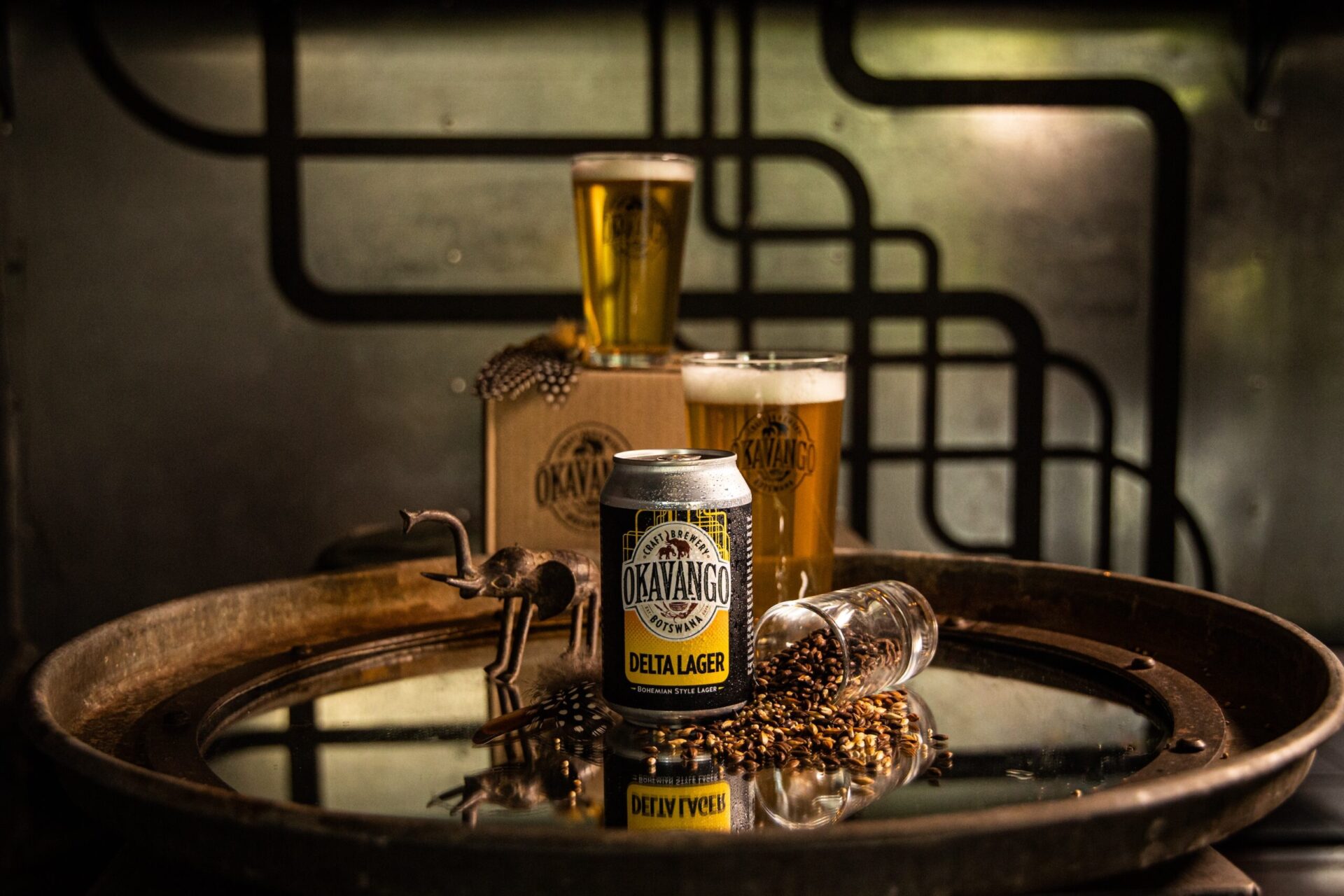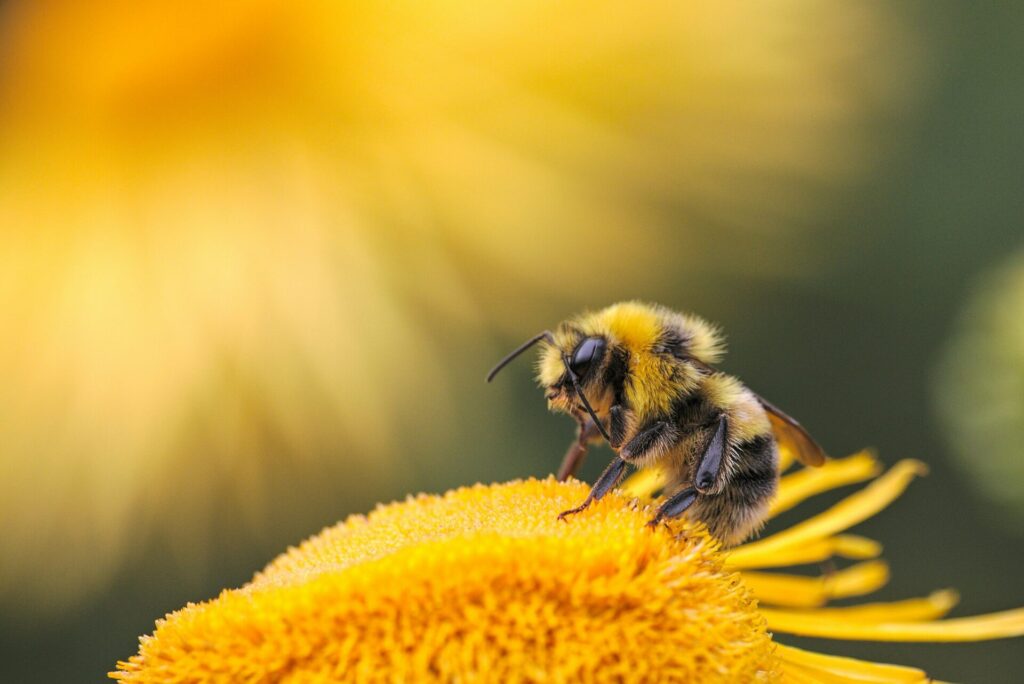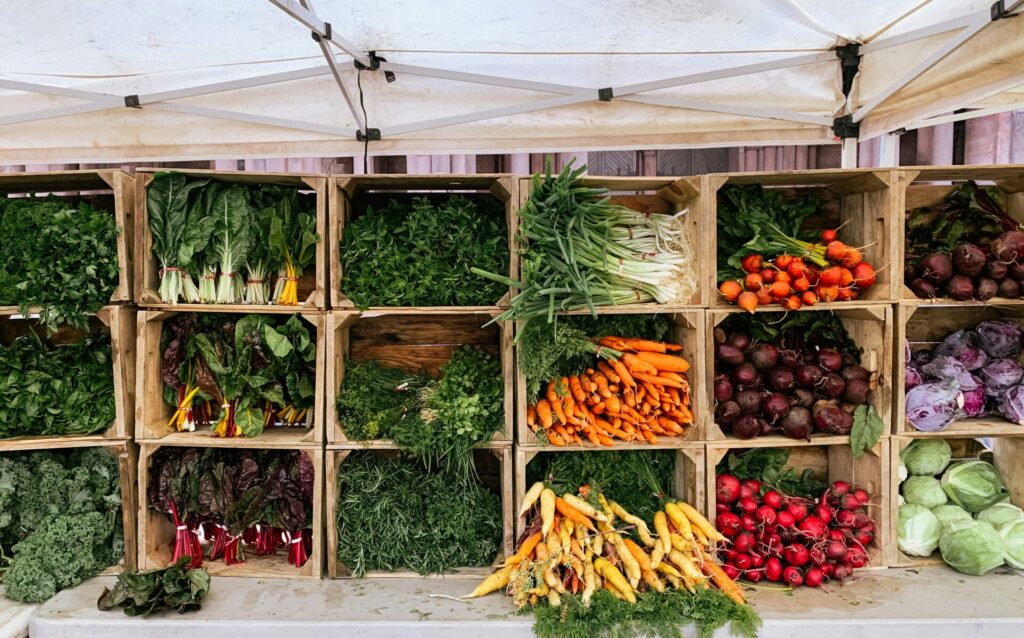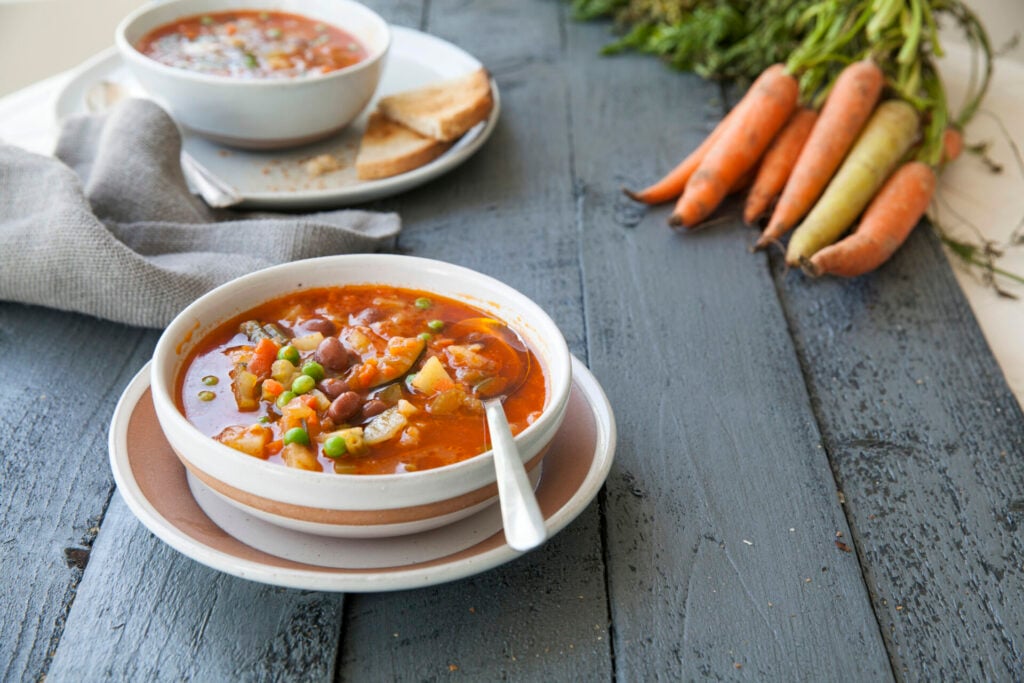The chatter of locals sharing cold beers after a long day fills the late afternoon air on the terrace of the Okavango Craft Brewery in Maun, Botswana. Children dart between tables, brewery cats lounge lazily in the shade, and bright bursts of bougainvillea climb along the fencing. Inside, a wall of gleaming fermentation tanks and hard working mash tuns catch the light.
At first, it feels like any other relaxed gathering spot in town. But this is a brewery with a difference. With every pint poured, it’s helping protect elephants and support local farmers in the biodiverse Delta, where where growing conditions are far from easy, and where the landscape is shared with some very large neighbours.
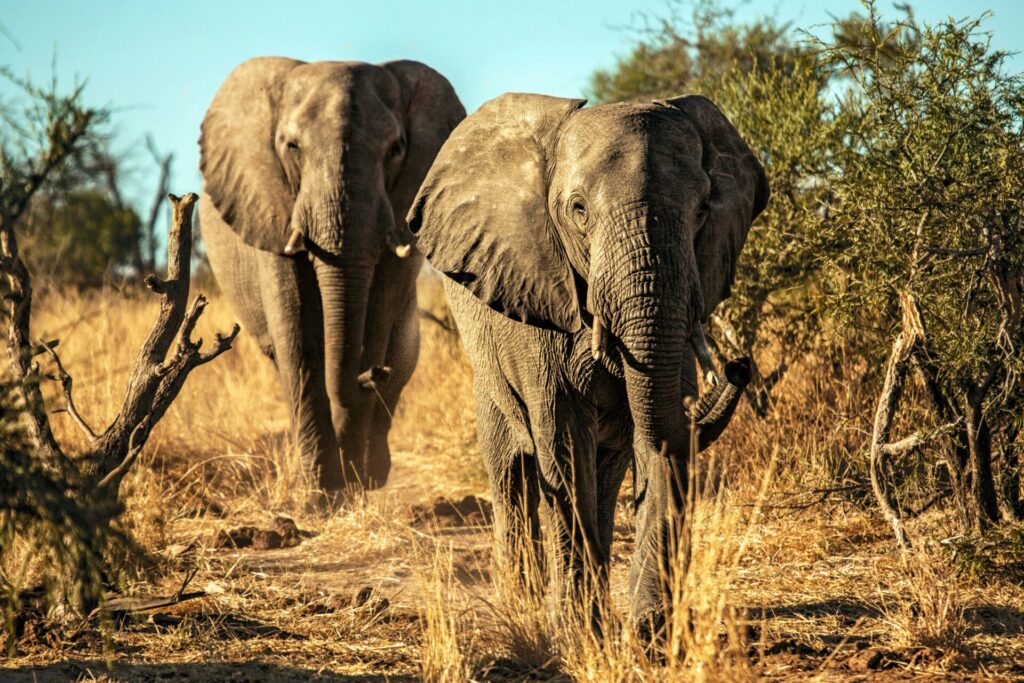
Botswana is home to the largest elephant population on Earth, thanks to decades of successful conservation and anti-poaching efforts. In this particular region, elephant numbers have surged from 18,000 to over 23,000 in just a few years. While this is a conservation success story, it comes with challenges, especially when elephants and farmers compete for the same land and resources.
Across 13 remote villages stretching over 8,000 square kilometres of the Okavango Delta, thousands of subsistence farmers rely on millet to survive. For families there, growing enough food to last a year isn’t optional, it’s about survival.
‘If you don’t produce enough, you go hungry,’ Okavango Craft Brewery Assistant, and conservationist Olerato Ratama explains. ‘So if elephants raid your farm, which they can do overnight, what are you left with? People felt they had no choice but to protect their land.’
Caught between conservation and daily survival, the tension between elephants and people was growing. That’s where Ecoexist came in. The NGO set out to break the cycle of loss with a five-goal initiative aimed at enabling peaceful coexistence. Alongside that effort, founders Graham McCulloch and Anna Songhurst created the Okavango Craft Brewery, a refreshingly purpose-driven offshoot designed to support both people and elephants.
Conservation Roots
Goal one was to study elephant movement across the region. Using GPS collars placed on matriarchs, researchers tracked herd migrations and identified the corridors elephants relied on. The data confirmed what locals already suspected: human and elephant spaces were clashing, often because farms had been placed directly in these migratory paths.

So goal two focused on land-use planning. Working alongside government officials, the team began mapping out areas best suited to farming and carving out protected elephant corridors, all while being careful not to displace farmers. But those already farming within high-conflict areas needed immediate help.
That’s where the Okavango Craft Brewery’s long-game solution began to take root.
Others installed rows of beehives along their perimeters, a surprisingly effective deterrent. As it turns out, the largest land mammals on Earth are terrified of one of the tiniest. One angry bee can send an entire herd running
To reduce elephant raids, the third goal involved testing and deploying non-lethal deterrents. Farmers were taught how to build solar-powered electric fences around clusters of fields. Others installed rows of beehives along their perimeters. Surprisingly it turns out that the biggest land mammals on Earth are terrified of one of the tiniest. One angry bee can send a whole herd running.
Another passive strategy employed to enable human-wildlife coexistence, was burning dried crushed chili. The smoke irritates elephants’ sensitive trunks, gently driving them away from the farms. It’s a natural deterrent that plays on their senses rather than fear or force
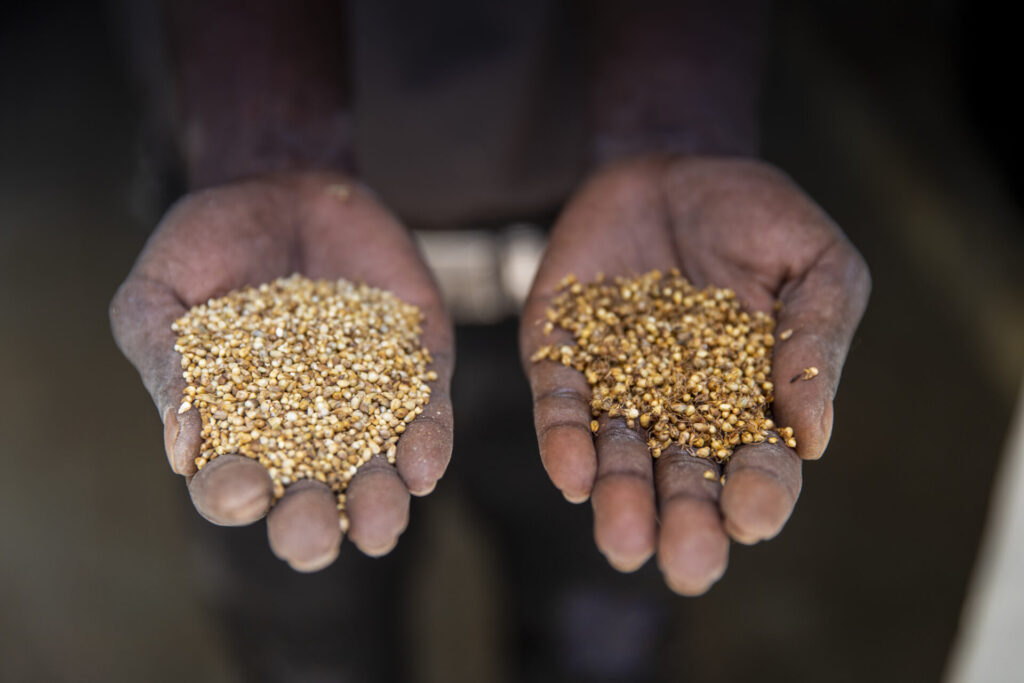
‘We wanted farmers to have tools that worked, tools that didn’t involve killing elephants,’ Ollie says. ‘It’s nature protecting itself.’
Brewing up an Elephant Economy
But real change came with goal five: building an elephant economy so that farmer’s can actually profit from protecting. And that’s where the Okavango Craft Brewery came into play.
The brewery purchases millet directly from local farmers who agree to adopt elephant-friendly practices, receiving a premium price for their crop in return. This provides an economic reason to coexist peacefully with wildlife rather than viewing elephants as threats.
That millet is the base for Okavango’s craft beers, brewed using spring water tapped from the Delta’s aquifer and served up to locals, tourists, and conservation led camps such as Wilderness Destinations.
‘We wanted to create a product that could feed the conservation loop,’ says Ollie. ‘So we take grain from farmers who protect elephants, brew it locally, and sell it back into the community and tourism industry.’
Millet is a traditional grain in Botswana, but it’s also gaining global attention as a sustainable, drought-resistant alternative to barley. When brewed, it gives a lighter body and a slightly nutty, earthy flavour, making for crisp, refreshing beers that are perfectly suited to the heat of the Delta.
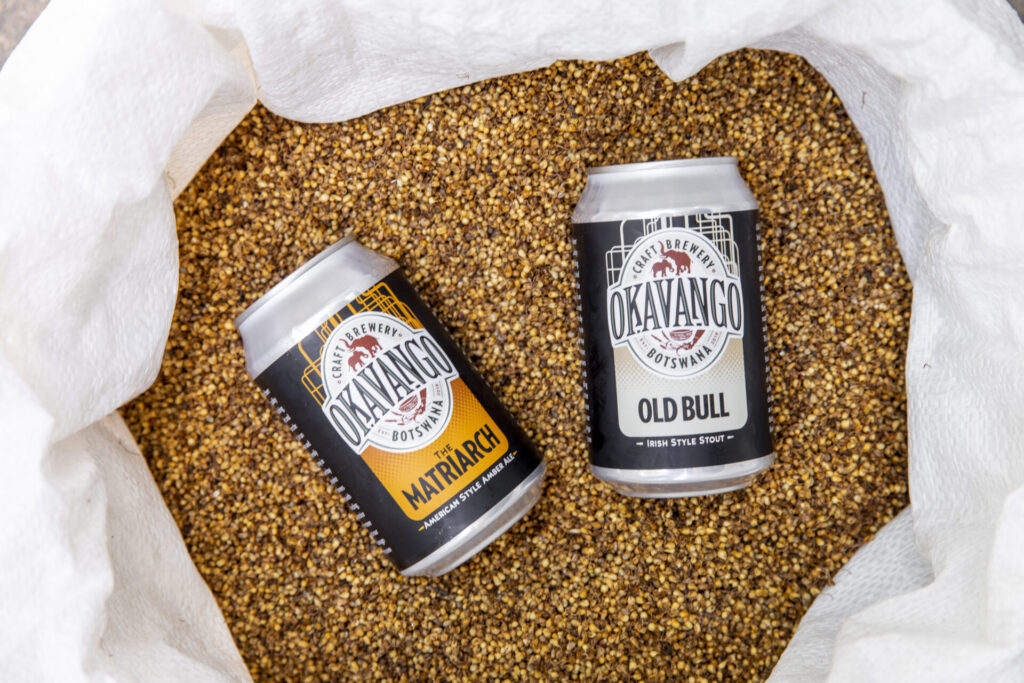
The positive effects now also go beyond beer. Farmers using beehive fencing are also producing and selling honey. Others are collecting elephant dung and using it to make eco-friendly paper. The brewery is even looking at ways to support these micro-industries under its ‘elephant-aware’ umbrella, to help locals see elephants as a shared resource instead of a menace.
This approach, Ollie explains, is the ultimate goal, shifting the mindset from conflict to coexistence.
‘There’s pride now. Farmers know their grain is going into something bigger, something that matters. They’re protecting elephants, and they’re getting recognition and income for it.’
The road hasn’t been easy. The brewery launched just as the COVID-19 pandemic disrupted tourism and trade, delaying its opening and cutting off vital early revenue. But it weathered the storm and now works with more than 100 farmers, with expansion on the horizon.
In a world where climate change and land use are intensifying human-wildlife conflict, the Okavango Craft Brewery offers a hopeful model where the world’s most popular alcoholic drink can fund conservation. The brewery might be small in scale (for now), but it’s a big symbol of how community-driven solutions can protect wildlife and transform lives.
So if you ever find yourself in Maun, sweating under the Botswanan sun, and someone hands you a cold, locally brewed pint, know that it’s more than just a beer. You’re helping to protect one of the world’s most iconic and endangered animals.
To learn more visit the Okavango Craft Brewery website here.

